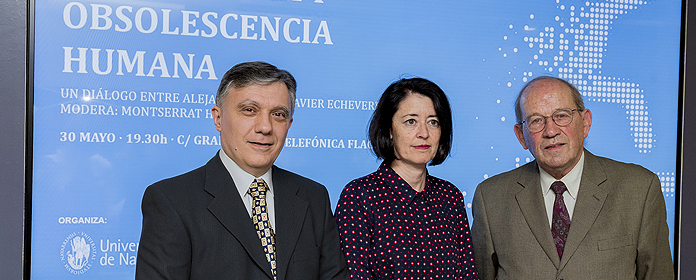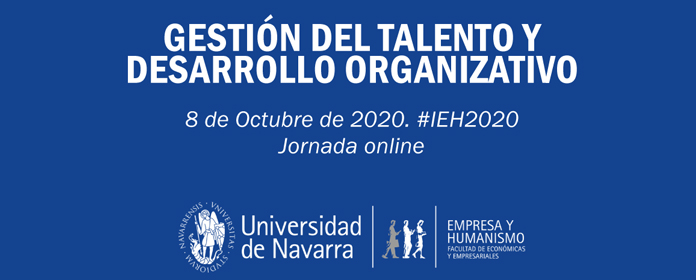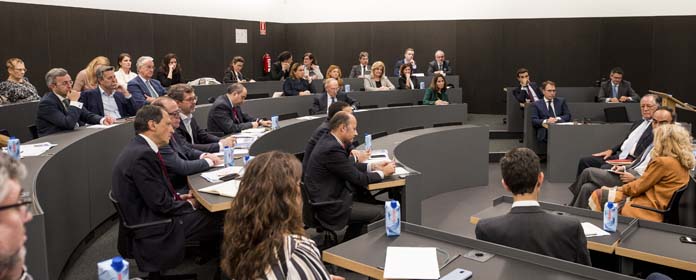Javier Echeverría: "Tech giants wield power with a complete lack of democracy".
The philosopher assures, in colloquium organized by the University of Navarra, that "technophobic humanists will become obsolete".

"Technology and technology improve life, generate welfare, but the technology of domination of a few people against millions of other human beings involves great risks," warned Professor Javier Echeverría. The Full Professor and researcher of the CSIC took part in a colloquium with Professor Alejandro Vigo, organized by the high school business and Humanism at the School of Economics of the University of Navarra at partnership with Telefónica.
In this digital world that Professor Echeverría defines as the "third environment", large transnational corporations such as Google, Apple, Facebook and Amazon "generate infinite wealth, have a power greater than that of the States, which they exercise in a clearly imperial manner and with an absolute lack of democracy". In exchange for offering security to their users, he points out, "they impose rules in which there is no democracy whatsoever". In this case, "it is not technology that dominates the world; it is a few human beings who control the rest, as happened in feudal times," he said.
At colloquium , the role that man can play in the new era that is approaching was discussed. It also addressed the possibilities of action that are opening up for freedom in these times marked by technology. According to the experts, there is no obsolescence of the human being in a technological era, but technophobic humanists can become obsolete, because technology marks our lives.
The technique and Heidegger's thesis
For his part, Alejandro G. Vigo, professor of Philosophy at the University of Navarra, defended the value and meaning of the philosophical discipline today. For this he appealed to the thesis of the German philosopher Martin Heidegger, who is not interested in technique as tool, but in how technique constructs the truth of things, how it recreates the world and how nature and the human being are defined through the use of technique. "Technopesimists speak of the alienating character of technology: it dominates everything that surrounds man, including nature and resources. And so they denounce the uncontrollable character of planetary technology," the professor explained. "What threatens man does not come in the first place from the possibly deadly effects of machines and devices of technology. The real threat has already addressed man in his essence," Heidegger wrote in one of his essays.
For the Greeks nature was an object to be admired. However, for Heidegger "we live in a technological world, and nature is an instrument to be exploited. We are not preserving nature, but we are preserving a business. Here we can see how technology has changed our relationships, it has changed us, and it has changed our truth." Heidegger points out that the essence of technology is in "unveiling" and "challenging" nature, and therein lies the greatest risk.




